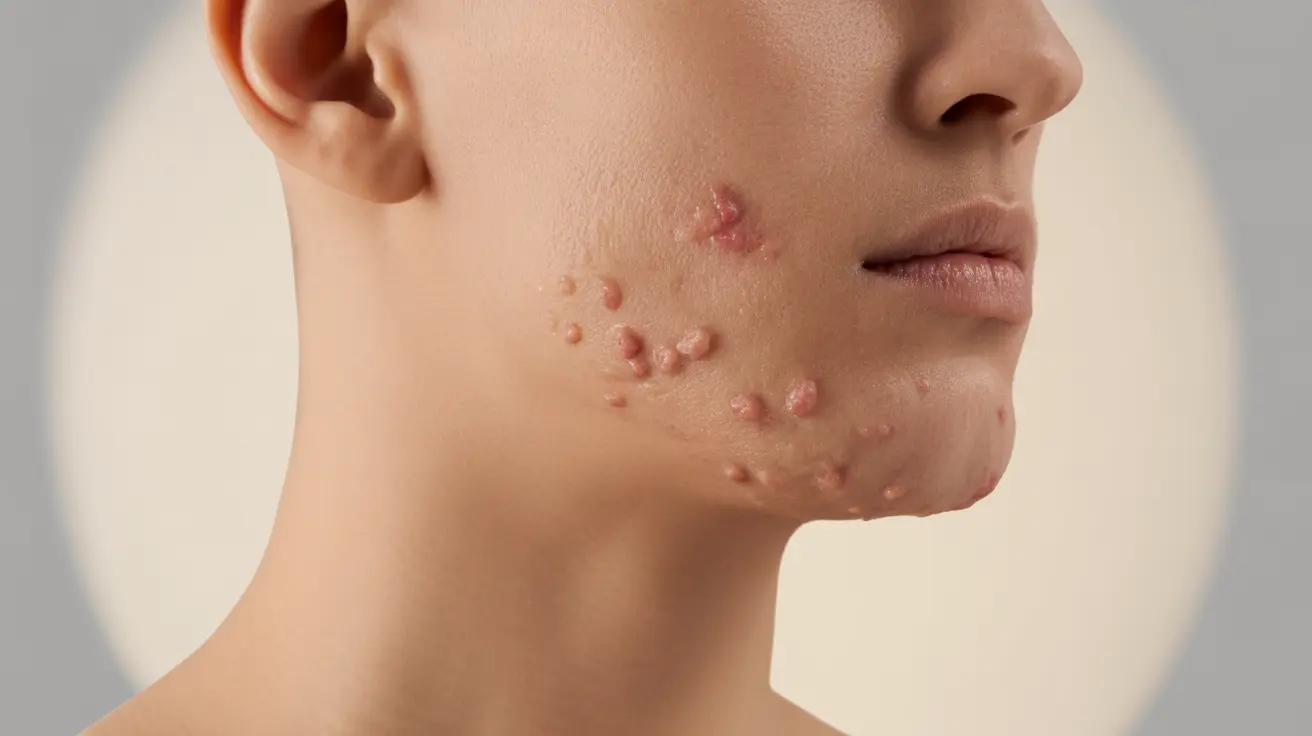Hormonal acne is a complex and often frustrating skin condition that affects millions of adults, particularly women. Unlike typical teenage acne, this form of acne is intimately connected to hormonal fluctuations and can persist well into adulthood, making it particularly challenging to treat with conventional acne remedies.
Understanding the unique characteristics and treatment approaches for hormonal acne is crucial for effectively managing this condition. This comprehensive guide will explore the causes, symptoms, and various treatment options available to help you achieve clearer, healthier skin.
Understanding Hormonal Acne and Its Causes
Hormonal acne develops when hormonal changes trigger increased sebum production, leading to clogged pores and inflammation. This type of acne commonly appears along the jawline, chin, and lower cheeks, creating a distinctive pattern that distinguishes it from other forms of acne.
Several hormonal factors can contribute to breakouts:
- Menstrual cycle fluctuations
- Polycystic ovary syndrome (PCOS)
- Pregnancy and postpartum changes
- Perimenopause and menopause
- Stress-induced hormonal changes
The Role of Androgens
Androgens, particularly testosterone, play a significant role in hormonal acne development. These hormones can stimulate oil glands to produce excess sebum, leading to clogged pores and subsequent breakouts. This explains why hormonal acne often becomes more severe during periods of hormonal fluctuation.
Identifying Hormonal Acne
Hormonal acne has several distinctive characteristics that set it apart from other types of acne:
- Typically appears on the lower third of the face
- Tends to be deep, cystic, and painful
- Often follows a cyclical pattern
- May be resistant to traditional acne treatments
- Usually appears as inflammatory lesions rather than blackheads
Treatment Options and Solutions
Topical Treatments
While traditional acne treatments may help, specific topical solutions can be particularly effective for hormonal acne:
- Retinoids
- Benzoyl peroxide
- Salicylic acid
- Niacinamide
- Azelaic acid
Oral Medications
For more severe cases, various oral treatments may be prescribed:
- Birth control pills (for women)
- Spironolactone
- Anti-androgen medications
- Oral antibiotics (short-term use)
Lifestyle and Diet Modifications
Several lifestyle changes can help manage hormonal acne:
- Maintaining a consistent skincare routine
- Managing stress through exercise and relaxation techniques
- Getting adequate sleep
- Avoiding touching or picking at acne
- Following an anti-inflammatory diet
Dietary Considerations
Certain dietary modifications may help reduce hormonal acne:
- Limiting dairy consumption
- Reducing refined sugar intake
- Increasing omega-3 fatty acids
- Adding anti-inflammatory foods
- Staying properly hydrated
When to Seek Professional Help
Consider consulting a dermatologist if your hormonal acne:
- Persists despite over-the-counter treatments
- Causes emotional distress
- Leads to scarring
- Significantly impacts your quality of life
- Shows signs of infection
Frequently Asked Questions
What causes hormonal acne and why does it often appear on the lower face and jawline?
Hormonal acne is primarily caused by fluctuations in hormone levels, particularly androgens, which stimulate oil production in the skin. It appears on the lower face and jawline because these areas have a higher concentration of hormone-sensitive oil glands.
How is hormonal acne different from regular acne and why is it more resistant to treatment?
Hormonal acne tends to be deeper, more cystic, and more inflammatory than regular acne. It's more resistant to treatment because it's driven by internal hormonal factors rather than just surface bacteria or clogged pores.
What are the most effective treatments for hormonal acne, including both topical and oral options?
The most effective treatments often combine topical solutions (like retinoids and benzoyl peroxide) with oral medications such as birth control pills or spironolactone. A comprehensive approach that includes both medical treatments and lifestyle modifications typically yields the best results.
Can lifestyle changes or diet help prevent or reduce hormonal acne breakouts?
Yes, lifestyle changes can significantly impact hormonal acne. Maintaining a consistent skincare routine, managing stress, getting adequate sleep, and following an anti-inflammatory diet can help reduce breakouts.
When should I see a dermatologist for hormonal acne and what types of treatments might they recommend?
You should see a dermatologist if your acne is persistent, severe, causing scarring, or significantly affecting your quality of life. They may recommend prescription medications, hormone-regulating treatments, or specialized topical solutions based on your specific case.




